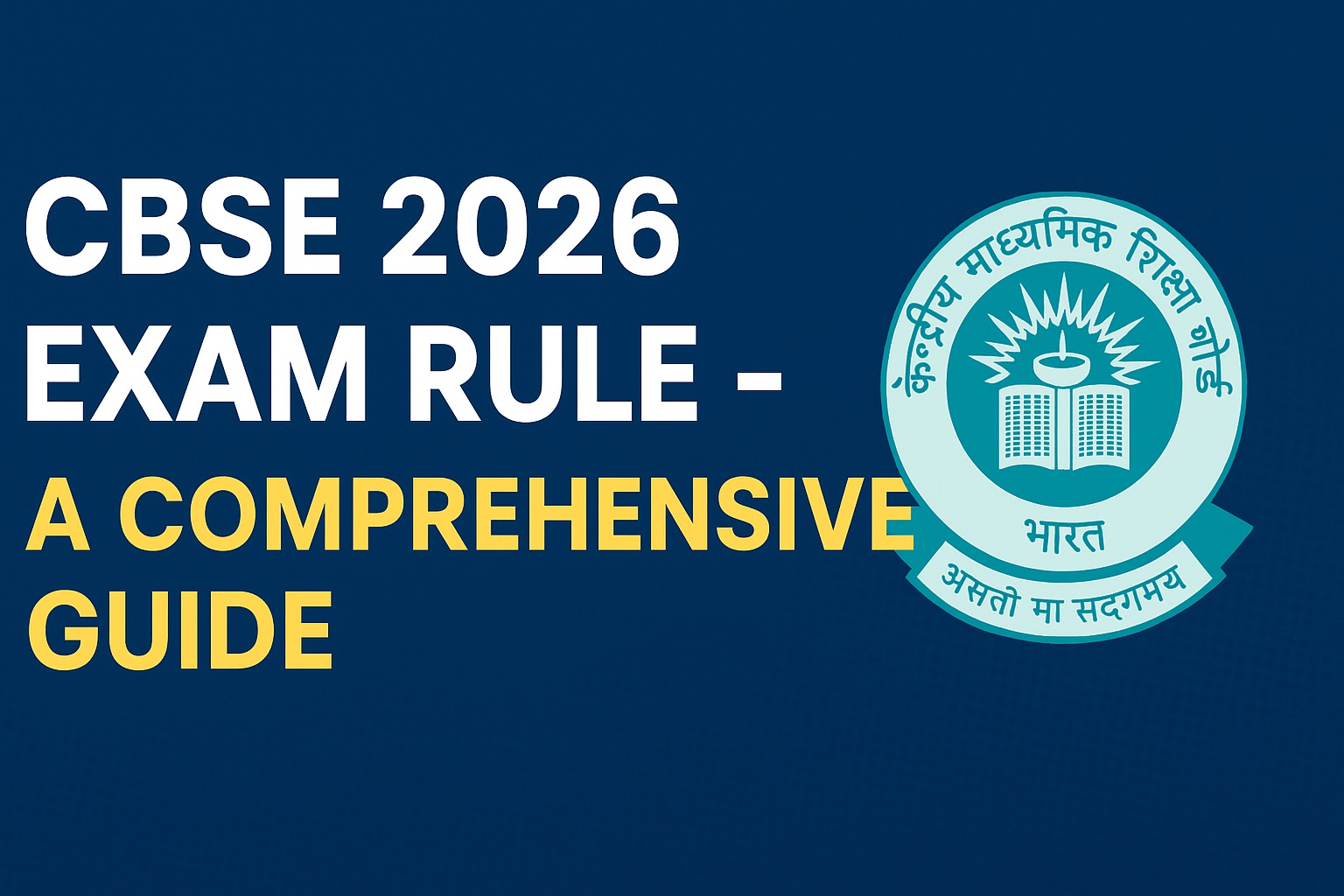CBSE 2026 Exam Rule – two exams, new pattern, 75% attendance, grading system, data verification & NEP 2020 reforms for students.
For More About Educational News click here.
Introduction
The Central Board of Secondary Education (CBSE) is bringing major changes in its examination system starting from the academic year 2026. These reforms are aligned with the National Education Policy (NEP) 2020, focusing on competency-based learning, reduced exam stress, and providing students with multiple opportunities to succeed.
This article explains in detail the CBSE 2026 exam rules, their impact on students, and how schools and parents should prepare for these reforms.
Two Exams in a Year
One of the most significant changes in CBSE 2026 exam rules is the introduction of two board exams per year.
- The first exam will be held in February, and it is mandatory for all students.
- The second exam will be conducted in May, which will be optional. Students who wish to improve their marks in up to three subjects can appear again.
- The final result will consider the better score between the two attempts.
– For Reference: Times of India – CBSE Class 10 Board Exam System 2026
Exam Pattern and Question Types
The CBSE has restructured its exam pattern to align with competency-based education.
- 80 marks will be allotted for the theory exam.
- 20 marks will be reserved for internal assessment, including projects, assignments, and class performance.
- A larger portion of the paper will include MCQs, case-based, and competency-based questions, reducing the burden of rote memorization.
-For Reference: Exam Jankari – CBSE Board Exam 2026 Pattern
Attendance Rules
Under the CBSE 2026 exam rules, attendance requirements will be stricter:
- Students must maintain a minimum of 75% attendance in classes to be eligible for board exams.
- Attendance will not just mean physical presence, but also active participation in assessments and projects.
This rule ensures that students stay consistent throughout the year instead of only focusing before the exams.
-For Reference: Gulf News – CBSE Exam Rules 2026
Candidate Data Verification (LOC)
Another important change in CBSE 2026 exam rules is related to List of Candidates (LOC) submission:
- Schools will have to submit verified data of students before exams.
- CBSE has introduced Candidate-wise Data Verification Slips, ensuring accuracy in student details like name, date of birth, and subject codes.
- APAAR ID (Automated Permanent Academic Account Registry) is now mandatory for student registration.
This step will reduce errors and improve transparency in the examination system.
-For Reference: Times of India – CBSE Data Verification Slip
Grading and Passing Criteria
The grading system will also undergo a slight change:
- CBSE will continue with a 9-point grading scale.
- To pass, a student must secure at least 33% marks in each subject.
- In case of two exams, the higher score will be considered for the final result.
– Reference: KollegeApply – CBSE Exam Pattern 2026
Impact on Students
The CBSE 2026 exam rules are expected to have a mixed impact:
Benefits
- Students get two opportunities to perform better, reducing exam stress.
- Competency-based questions will promote critical thinking instead of rote learning.
- Strict attendance rules will encourage regular participation in school.
Challenges
- Students will need better time management to prepare for two exams.
- Schools must upgrade their teaching methods to match the new assessment style.
- Some students may feel extra pressure due to two exam schedules.
CBSE 2026 Exam Rules and NEP 2020
These reforms are part of the National Education Policy 2020, which emphasizes:
- Holistic development of students
- Continuous learning instead of one-time testing
- Flexibility in assessments to reduce failure stress
Thus, CBSE 2026 exam rules aim to make India’s education system more inclusive, flexible, and skill-oriented.
–You can also read about World Patient Safety Day – Education and Awareness for more understanding of policy-driven reforms in different sectors.
Conclusion
The CBSE 2026 exam rules represent a transformative step in Indian education. With the introduction of two exams per year, strict attendance policies, competency-based assessment, and data verification systems, CBSE aims to reduce exam stress, enhance transparency, and promote meaningful learning.
Students, parents, and schools must adapt to these changes proactively to ensure success in the upcoming examination system.

